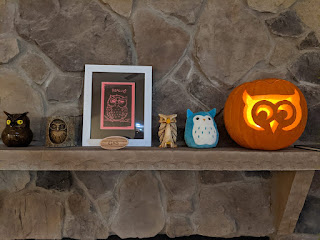Will It Bayes?
I'm trying out a new catchphrase. "Will It Bayes?" is meant to remind me to check whether a point estimate can be turned into an expectation over a distribution, whether a base rate has been considered, whether there is prior information that didn't make its way into a "data driven" discussion, whether I have multiple hypotheses, etc. I haven't tried it often yet! But I think it should work pretty well. The phrase piggybacks off of "Will It Blend", a silly series of videos where someone checks whether a possibly nonsensical object will blend, if added to a blender, like an iPhone, miniature blender, etc. I already randomly think "Will It Blend", hopefully bootstrapping the noticing. Examples after only a few days where it's come up already and the answer was yes, it will Bayes: [REDACTED] for work Guessing which member of a partnership carved which pumpkin [REDACTED] for being raw Among Us when observing some behavior which impli...
